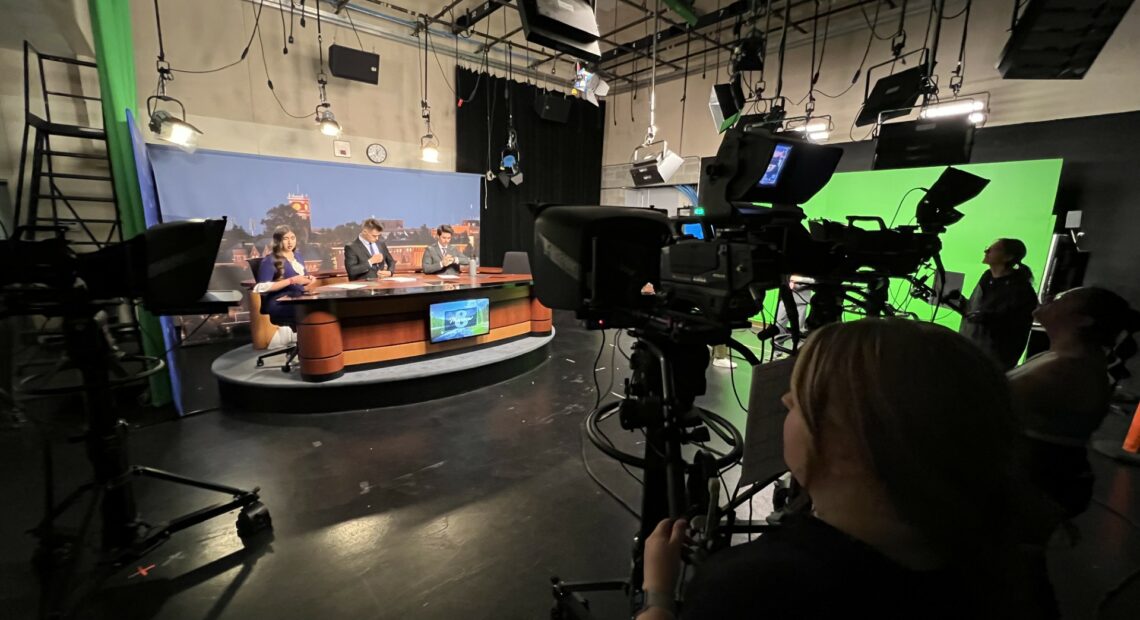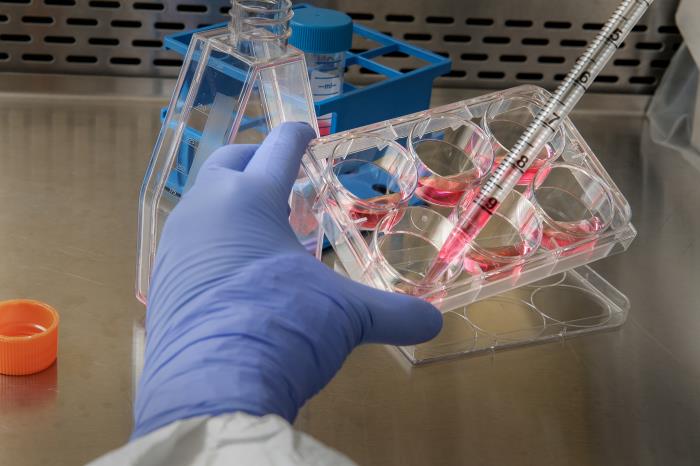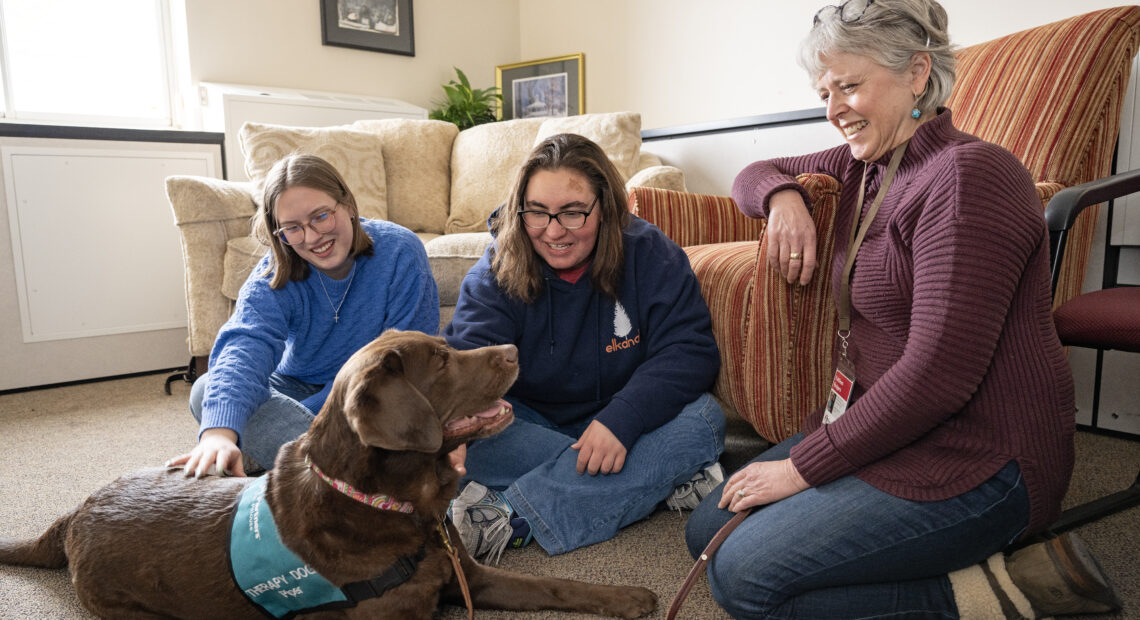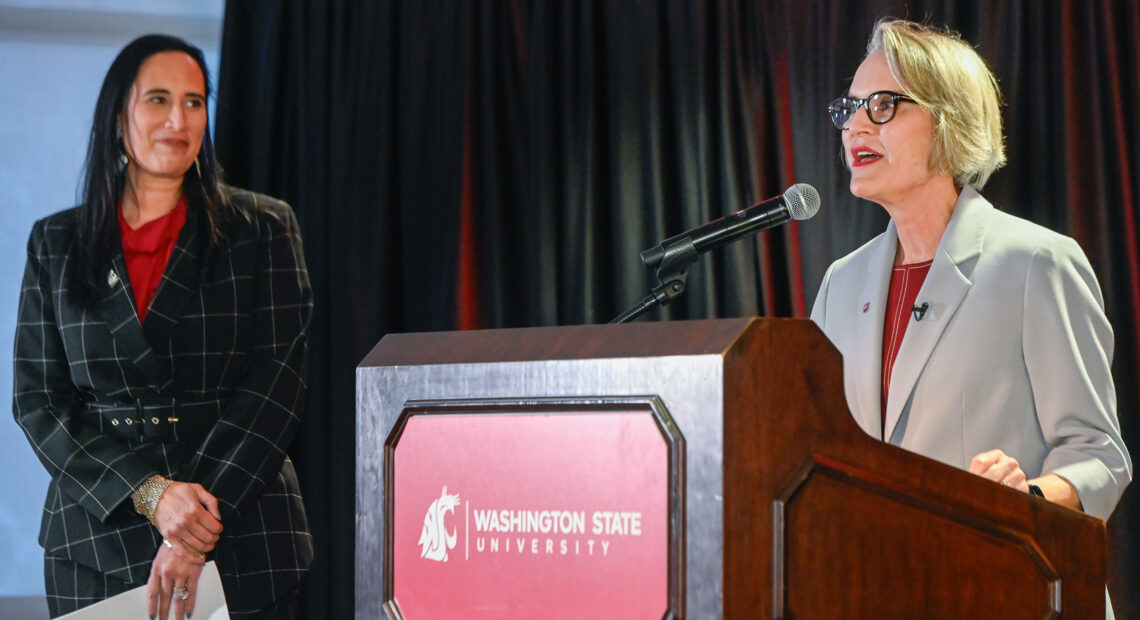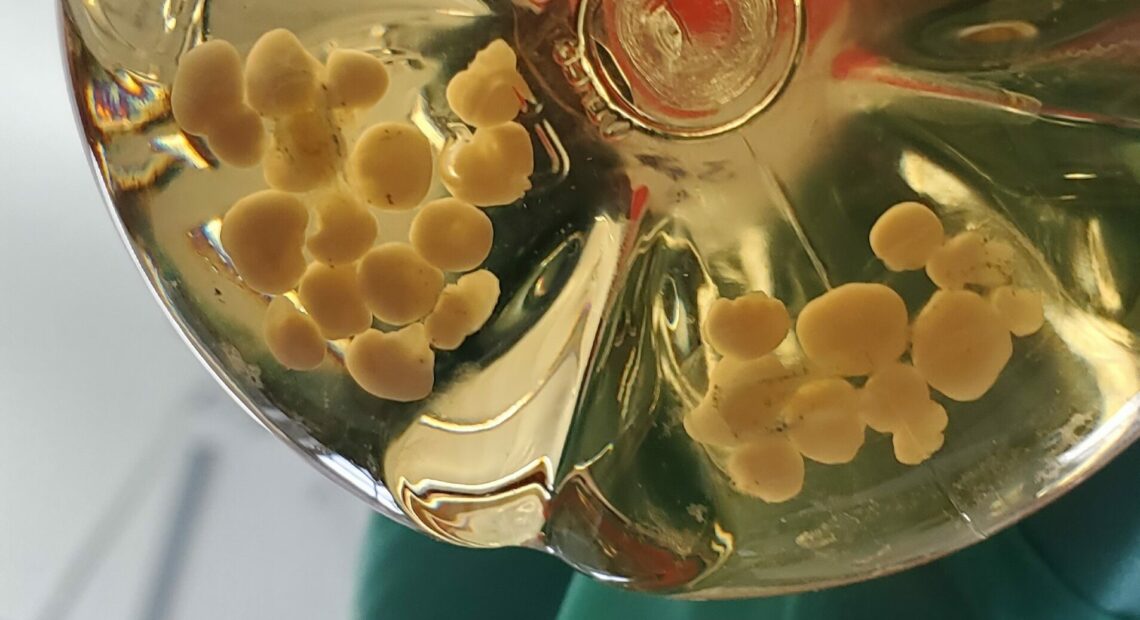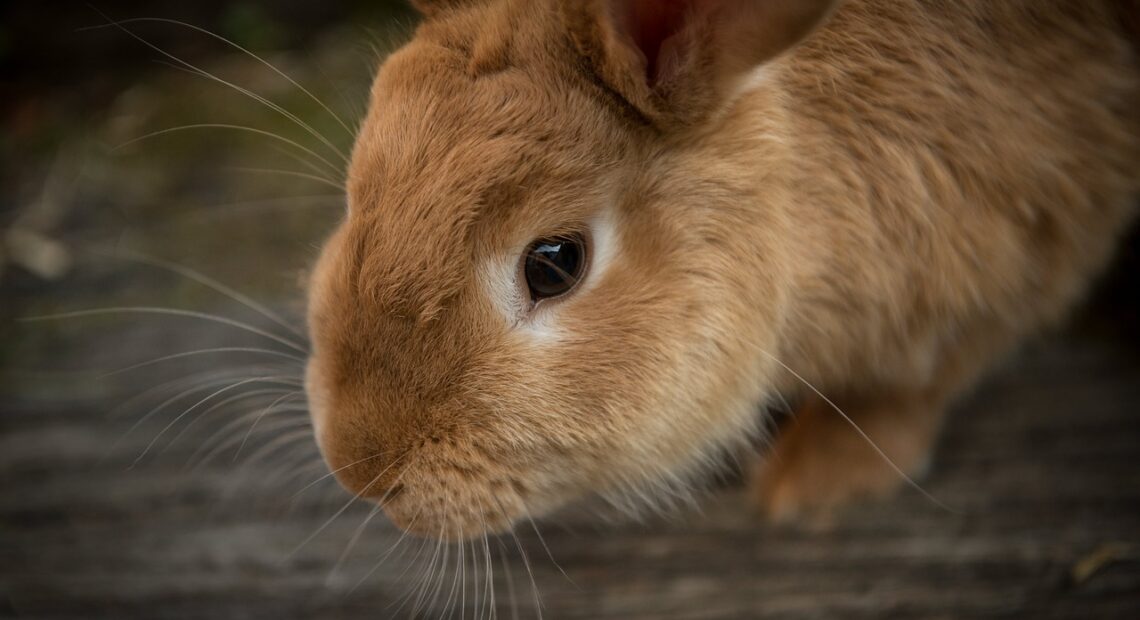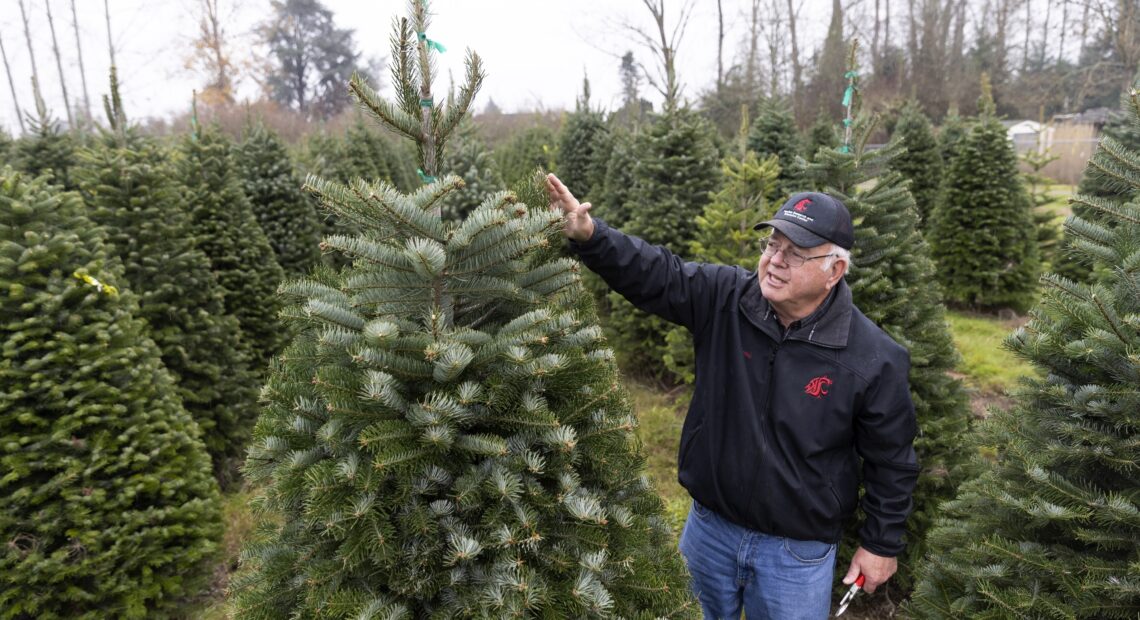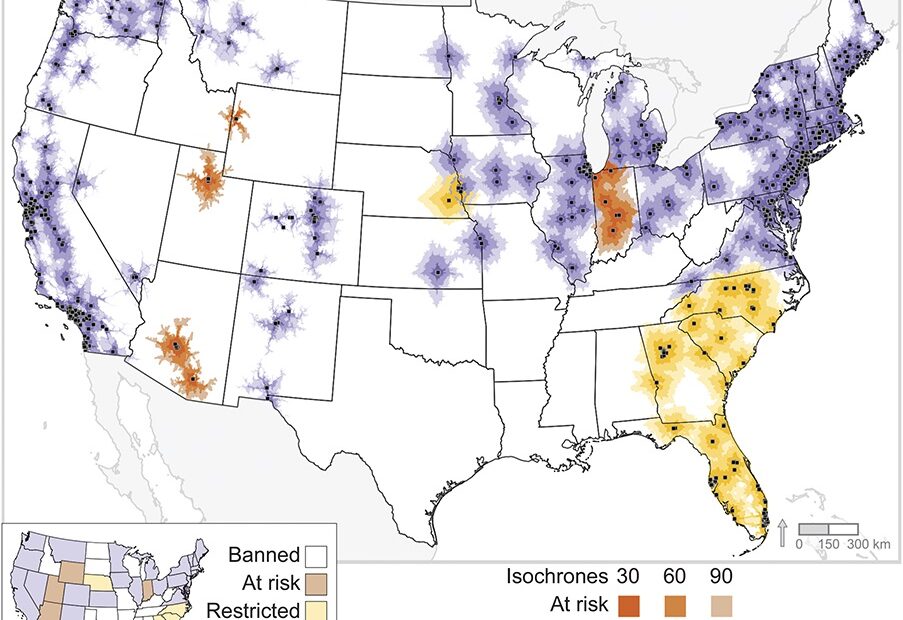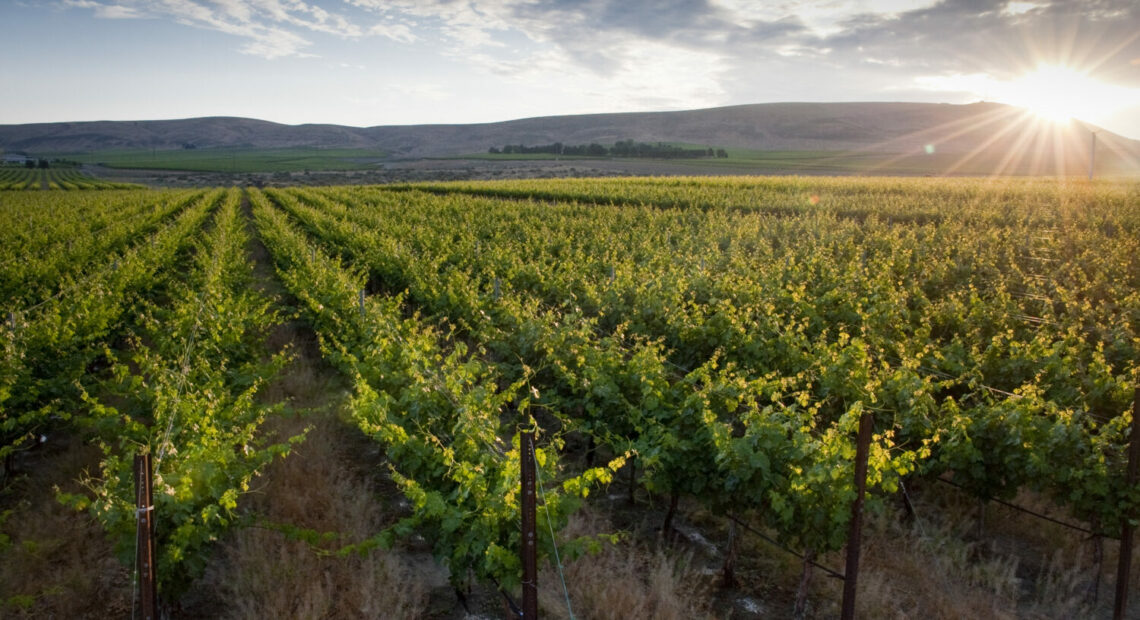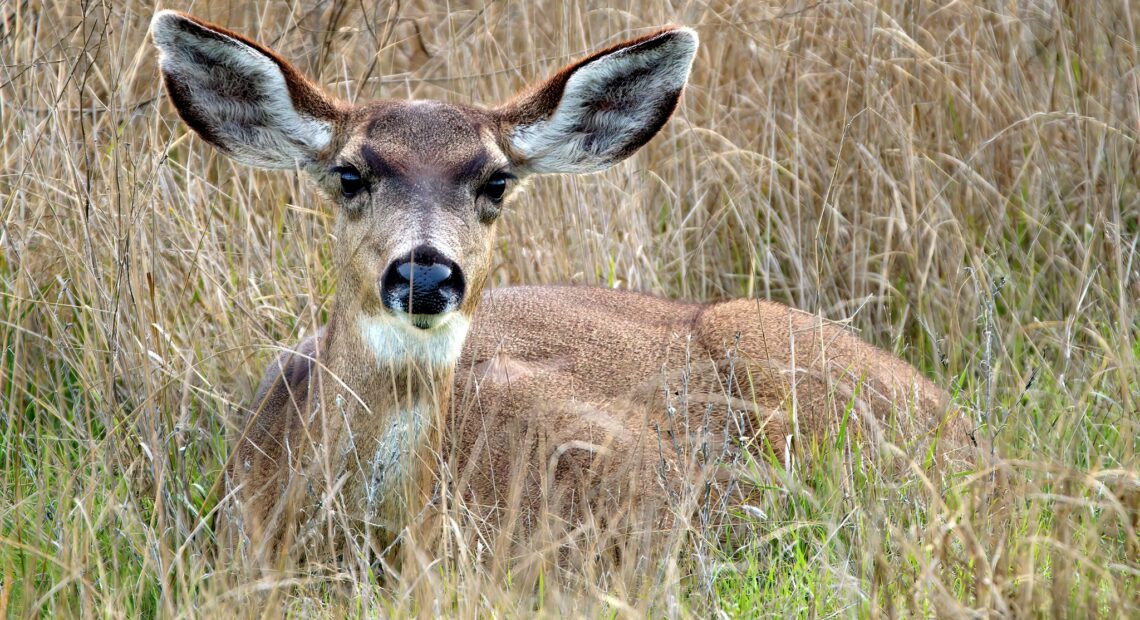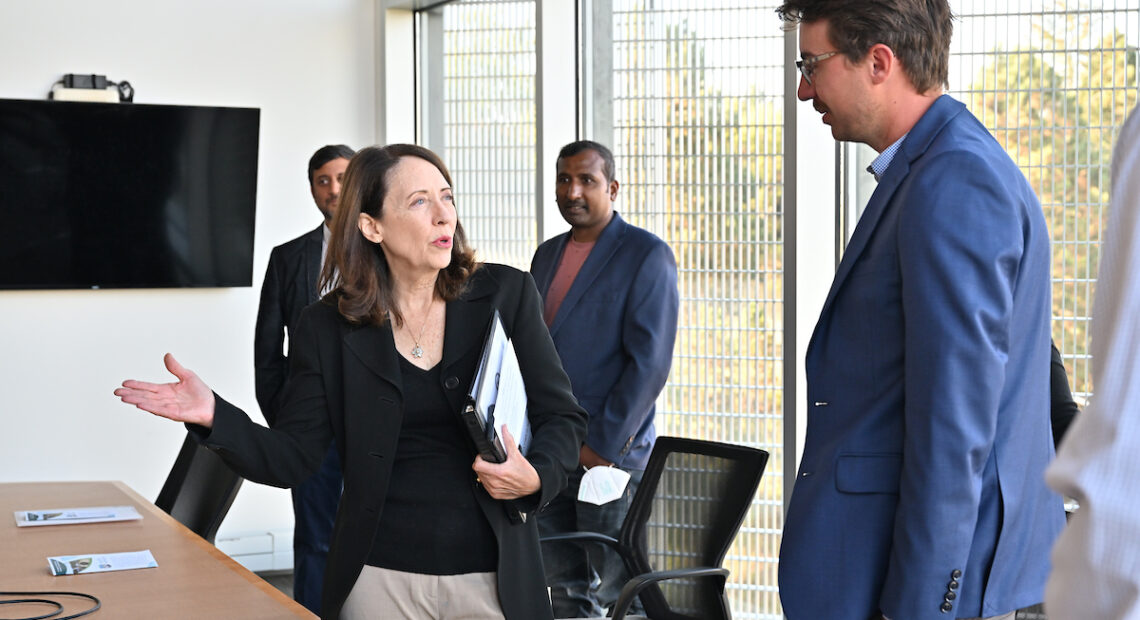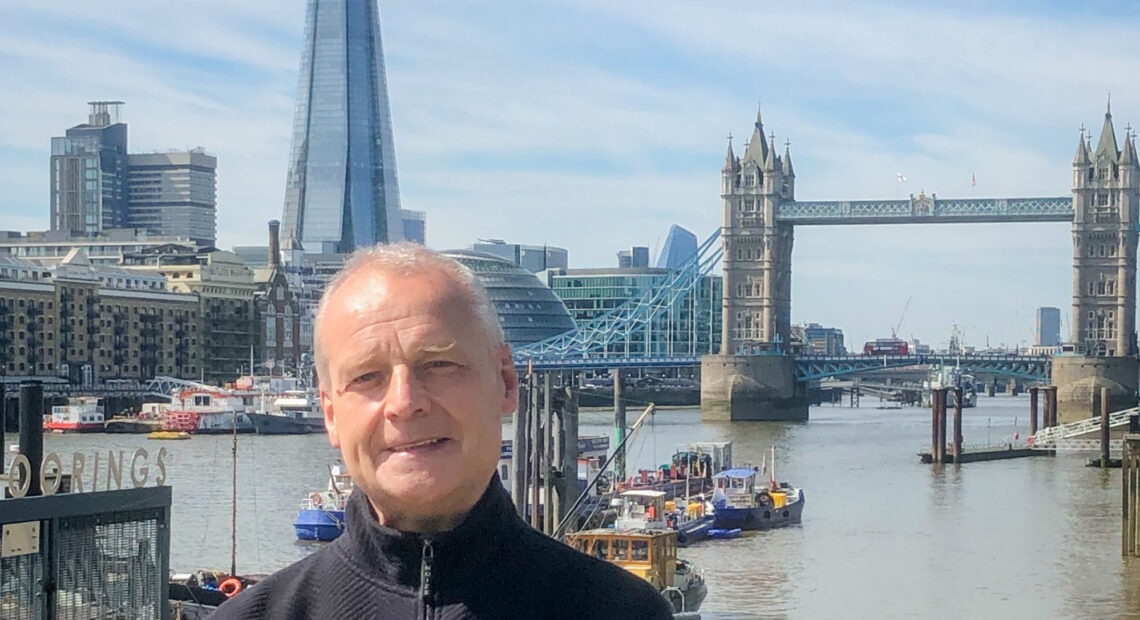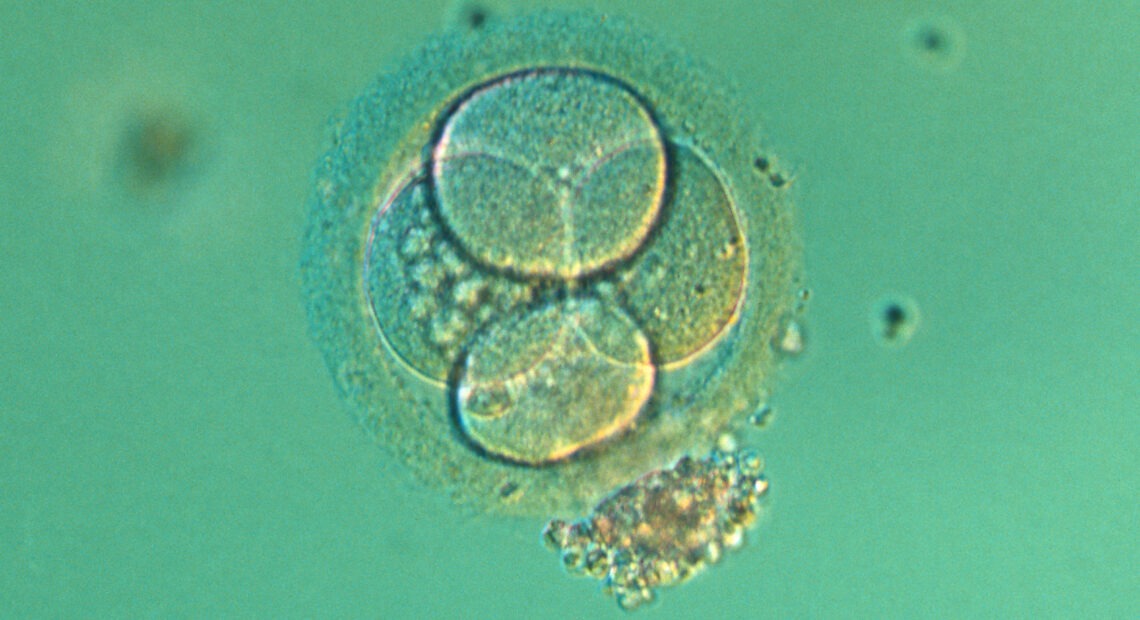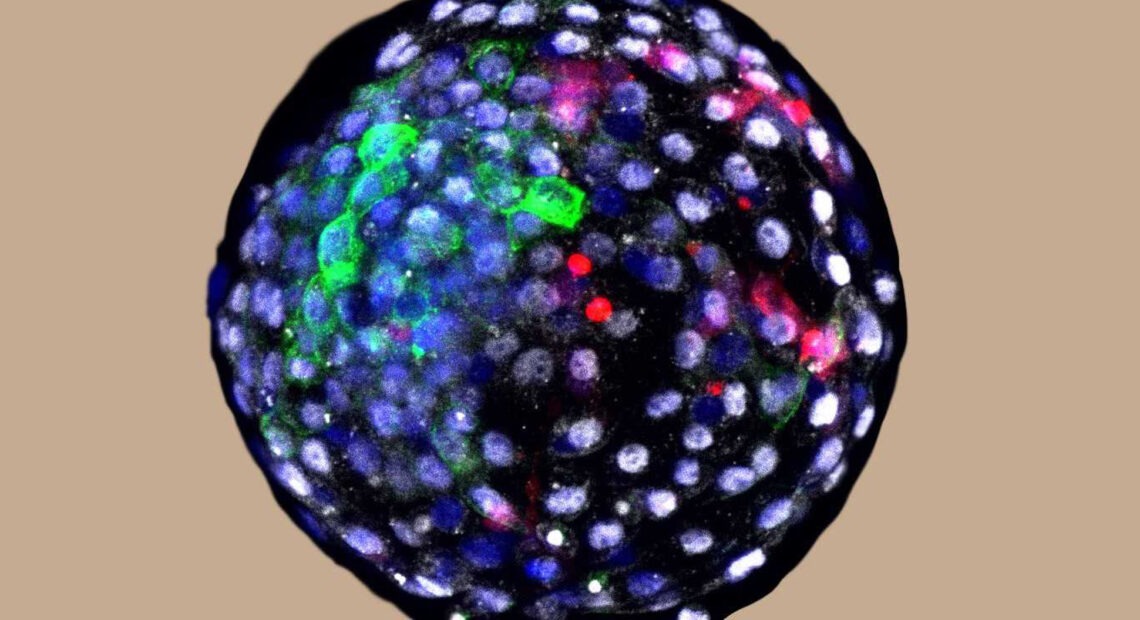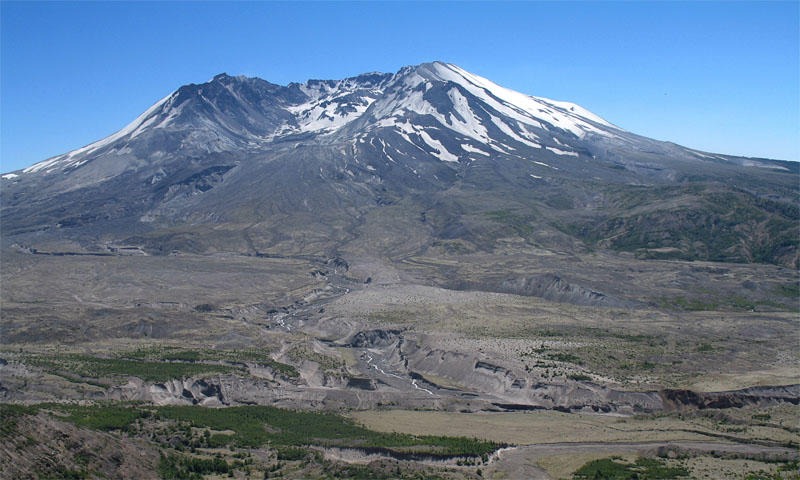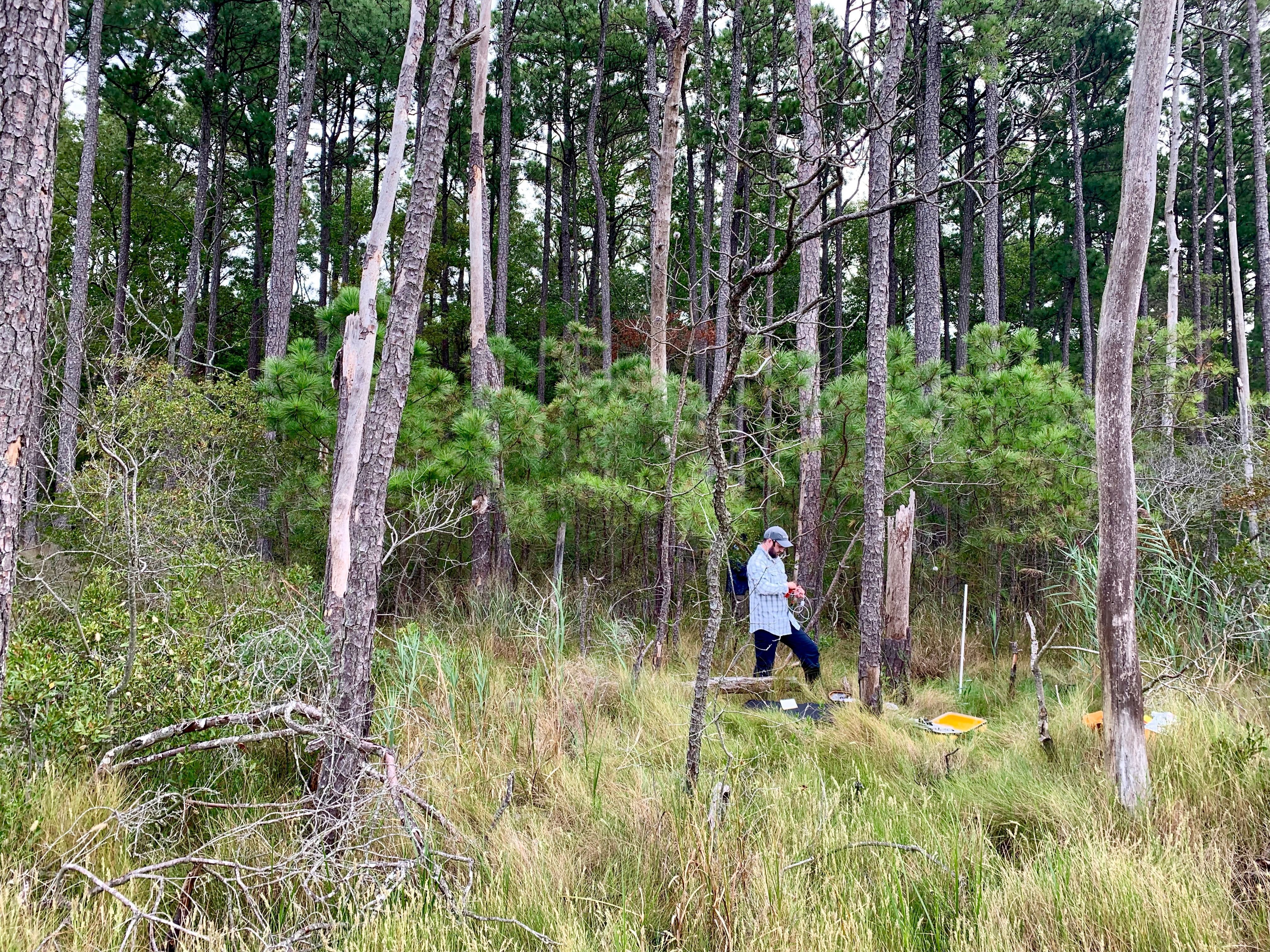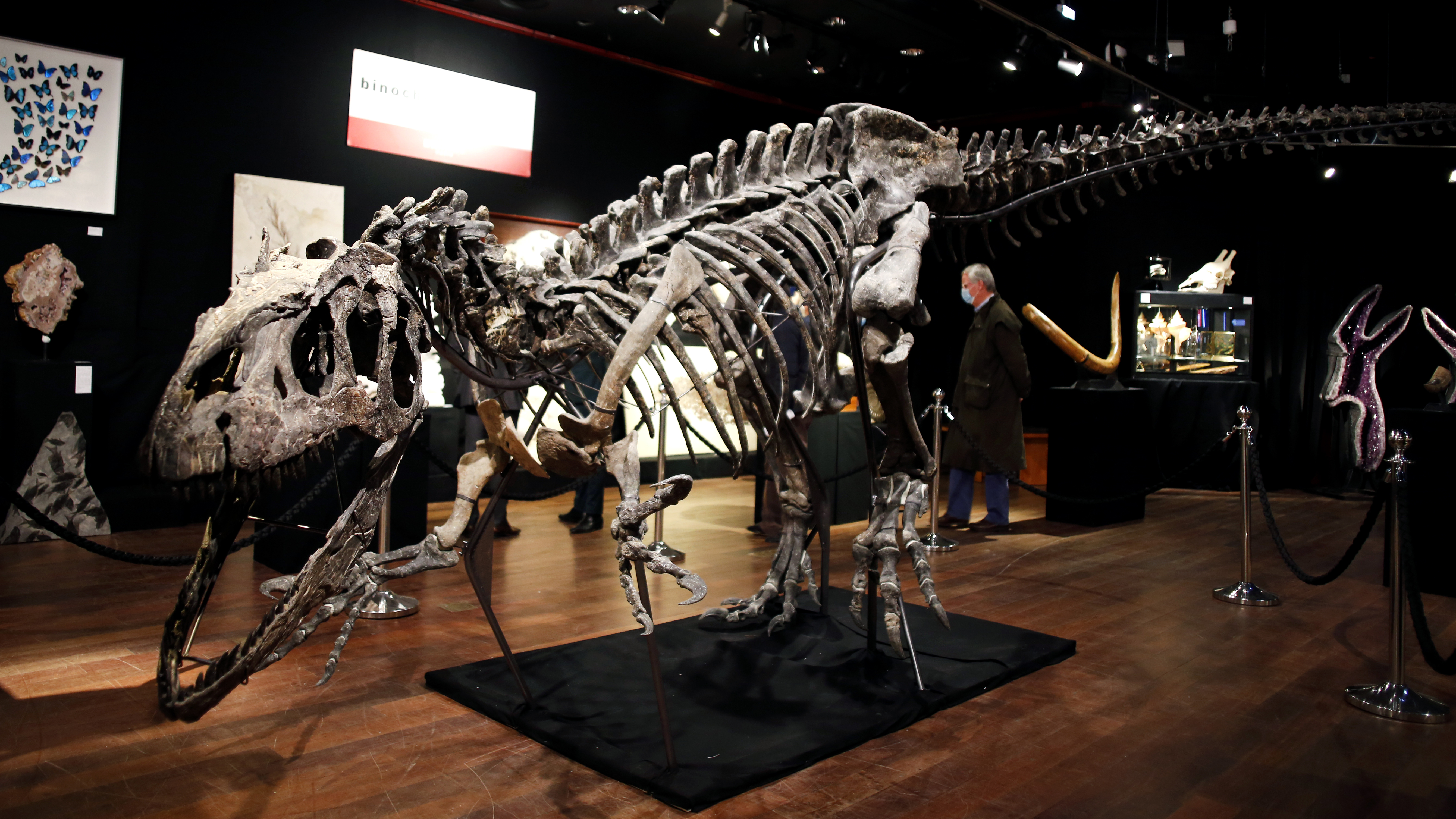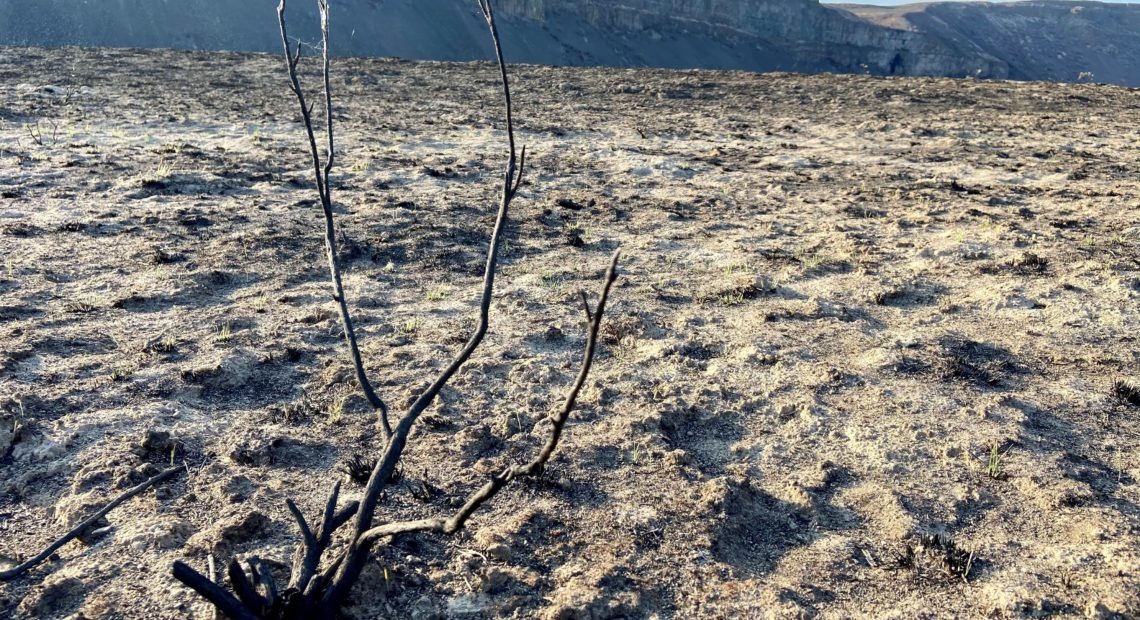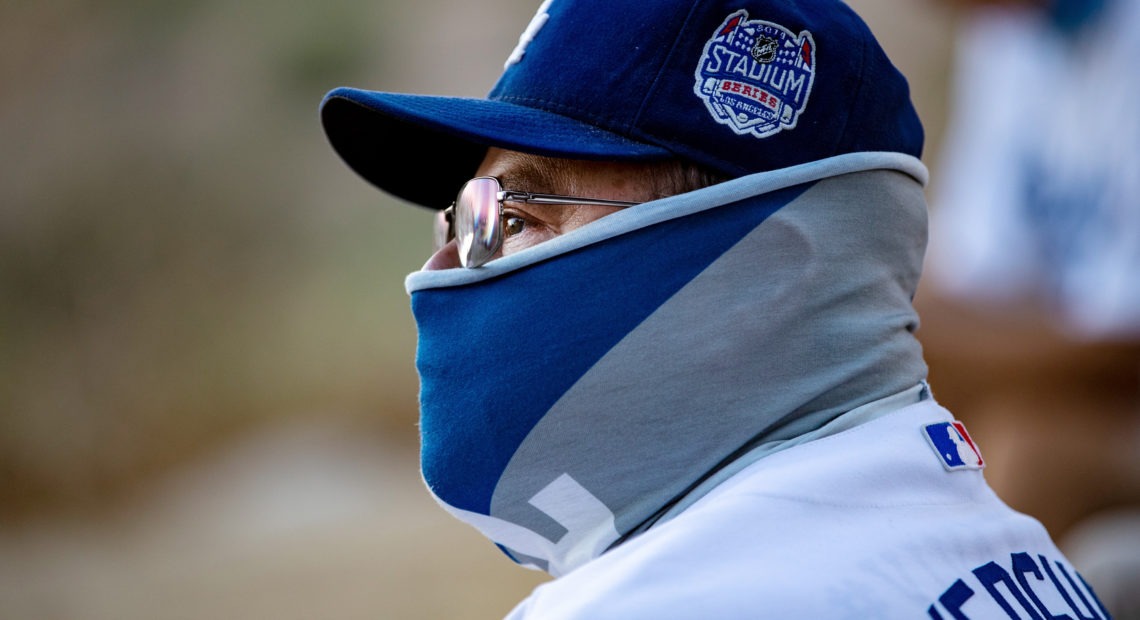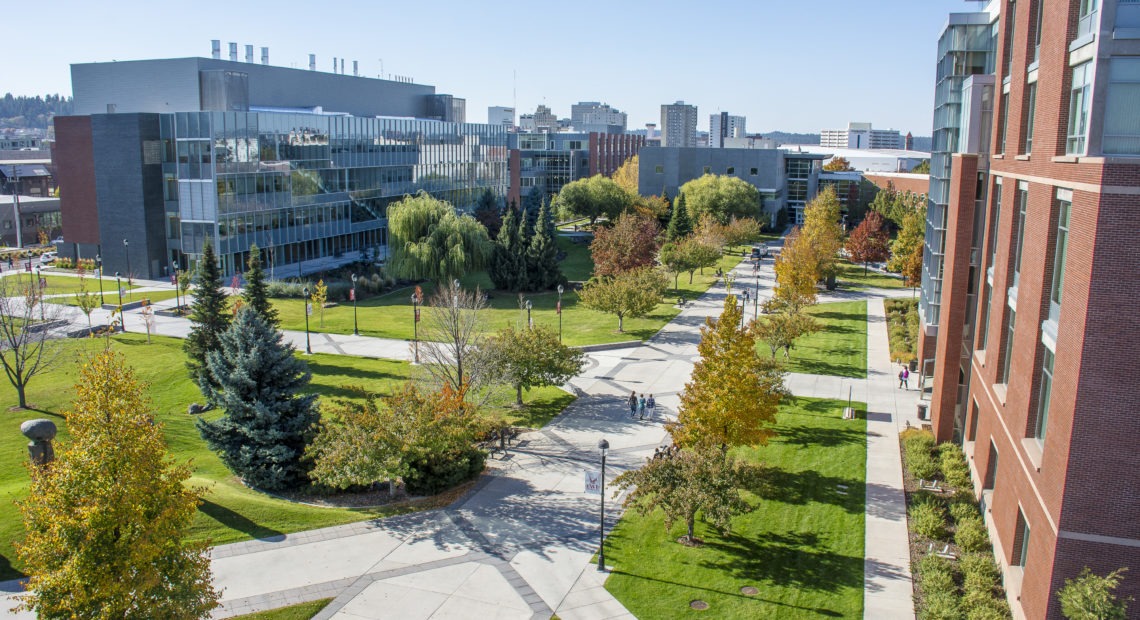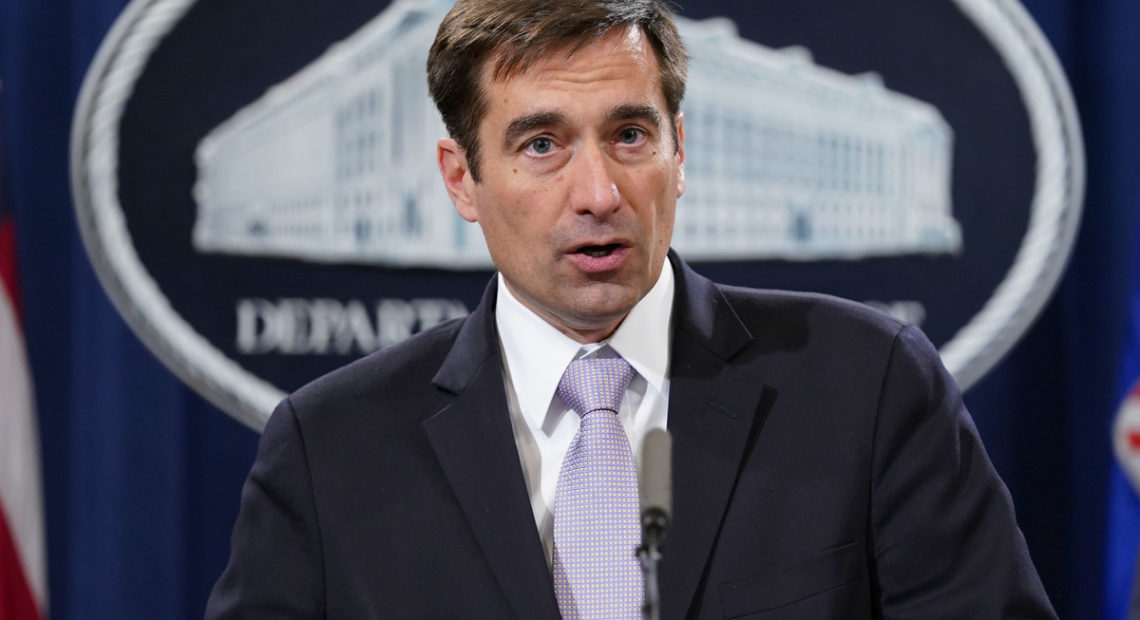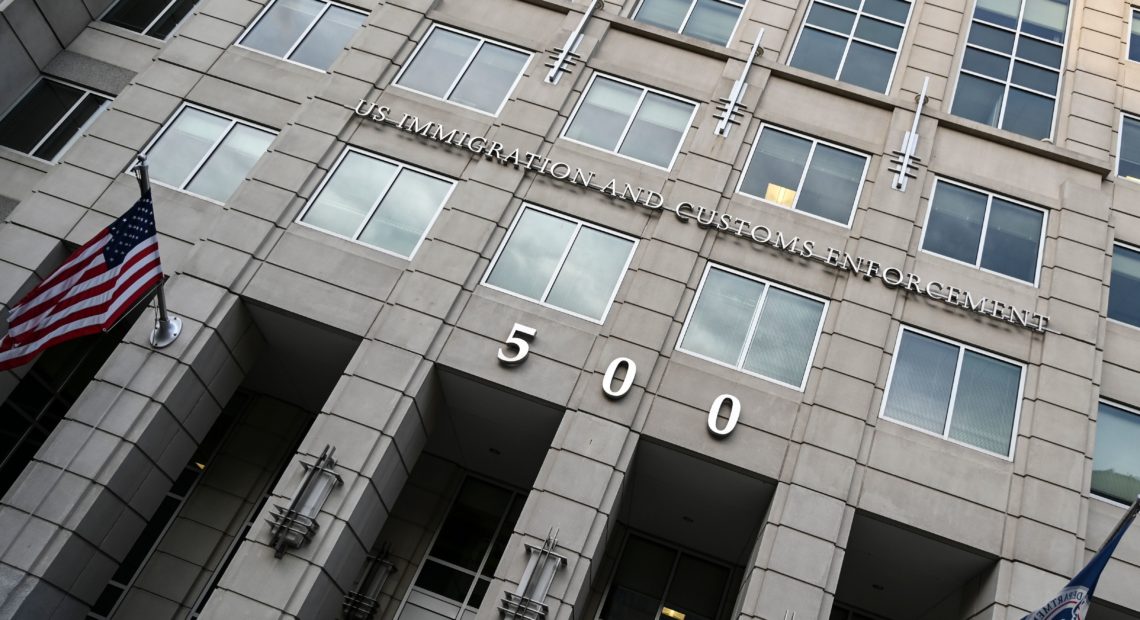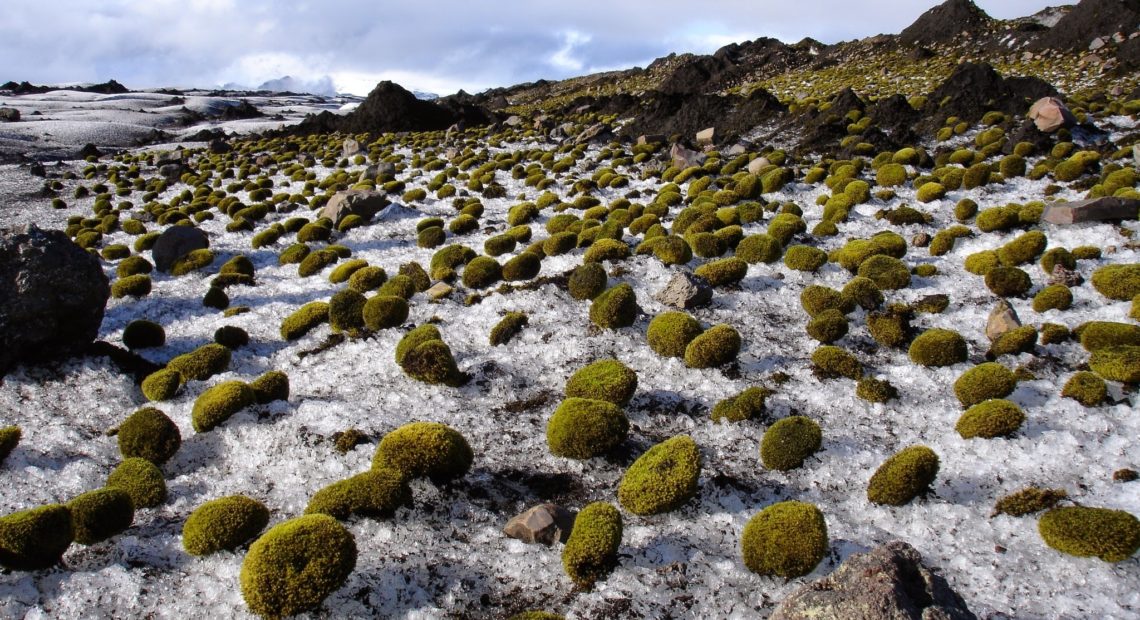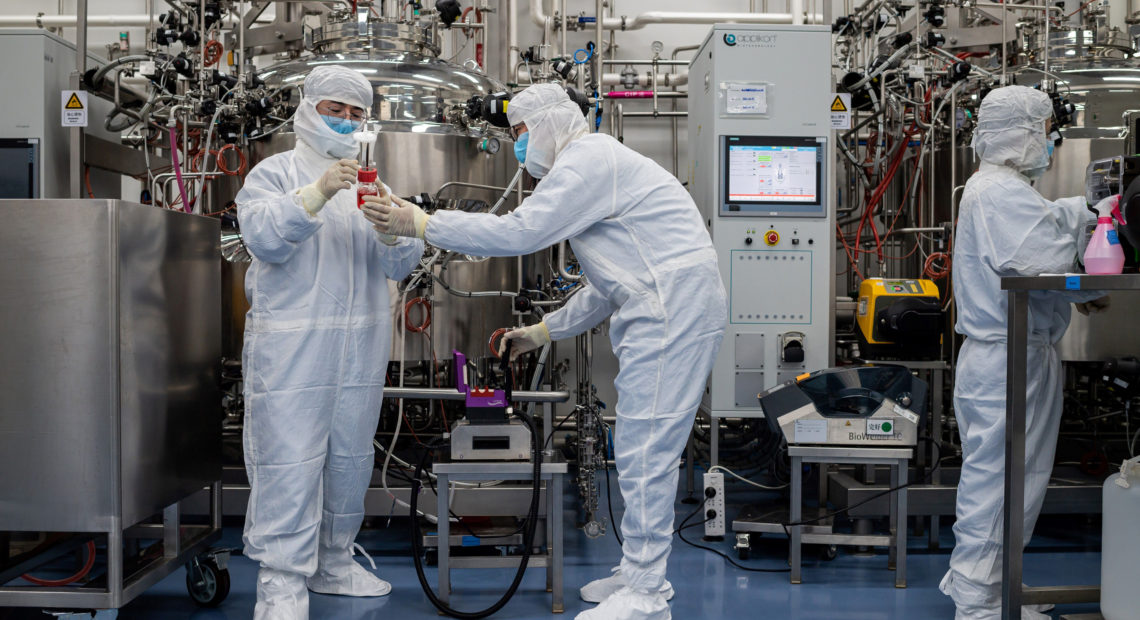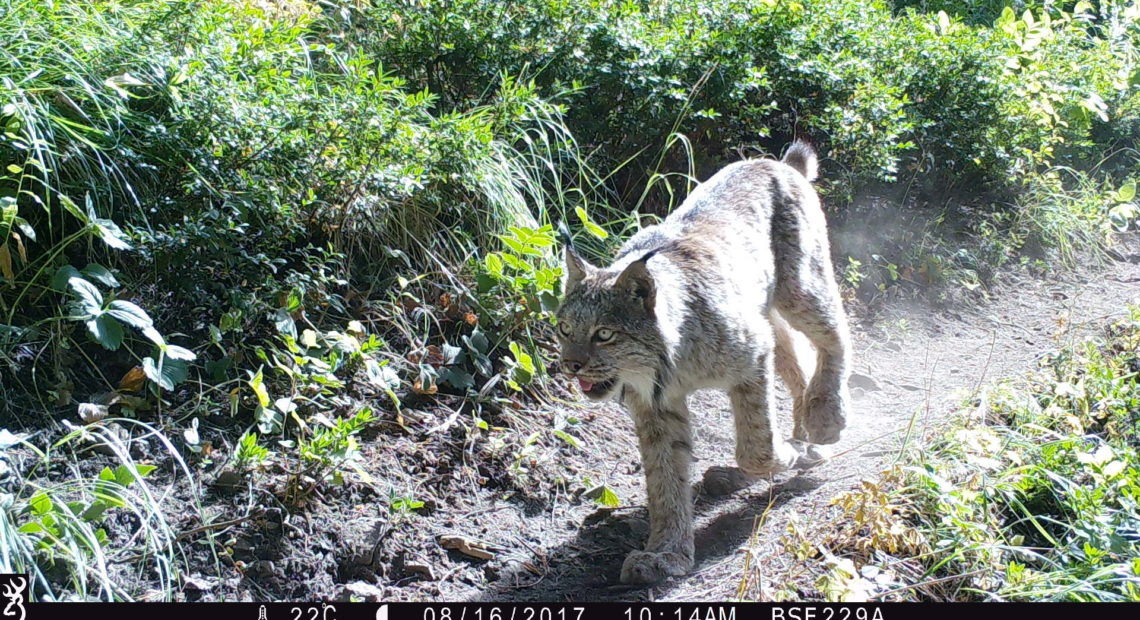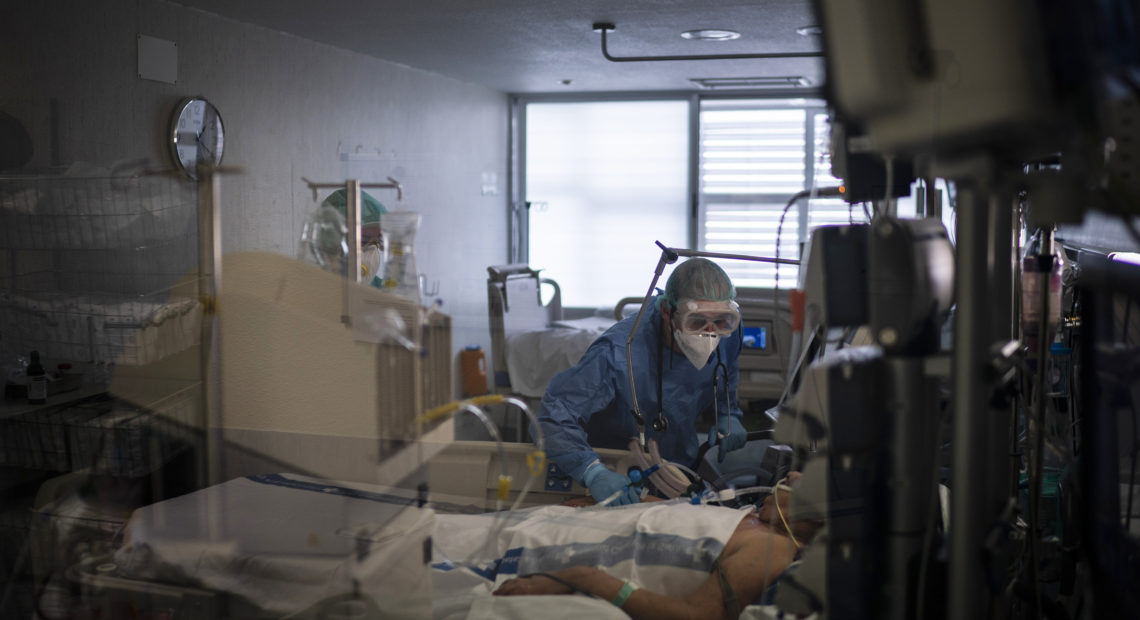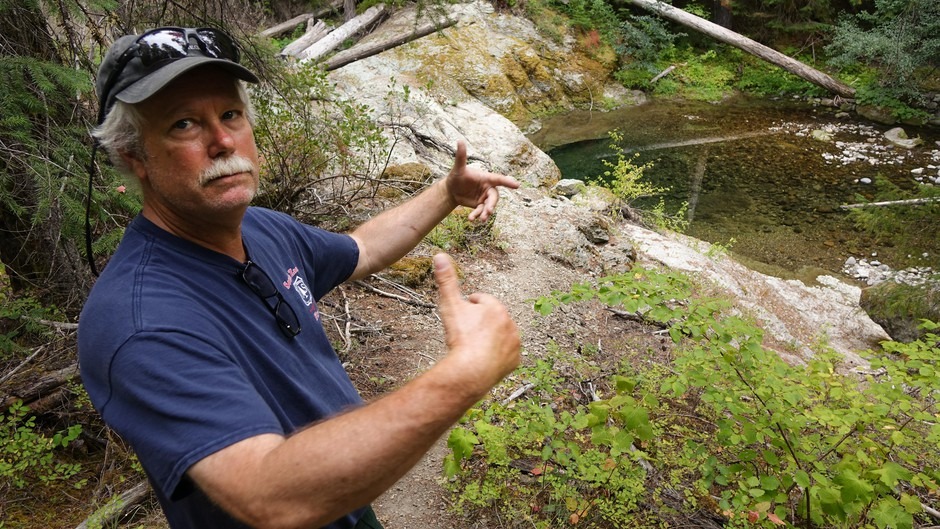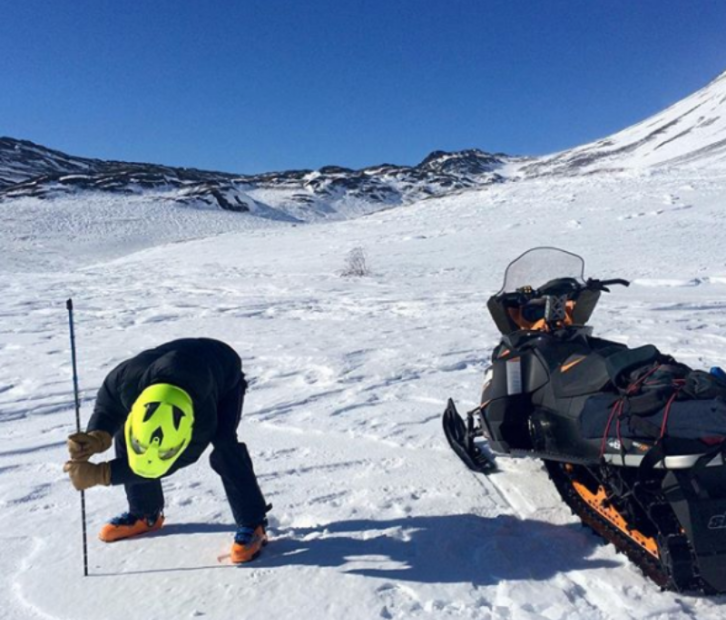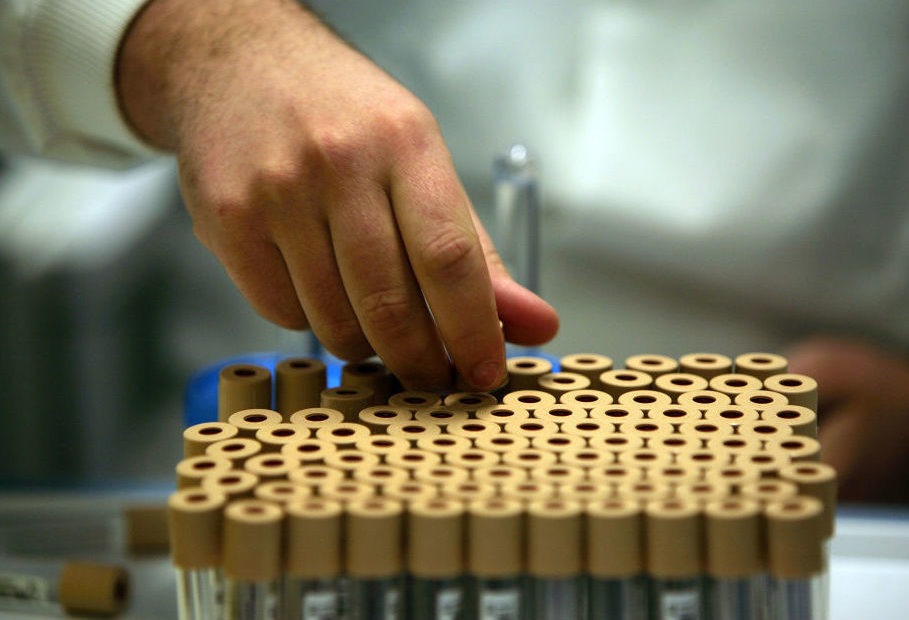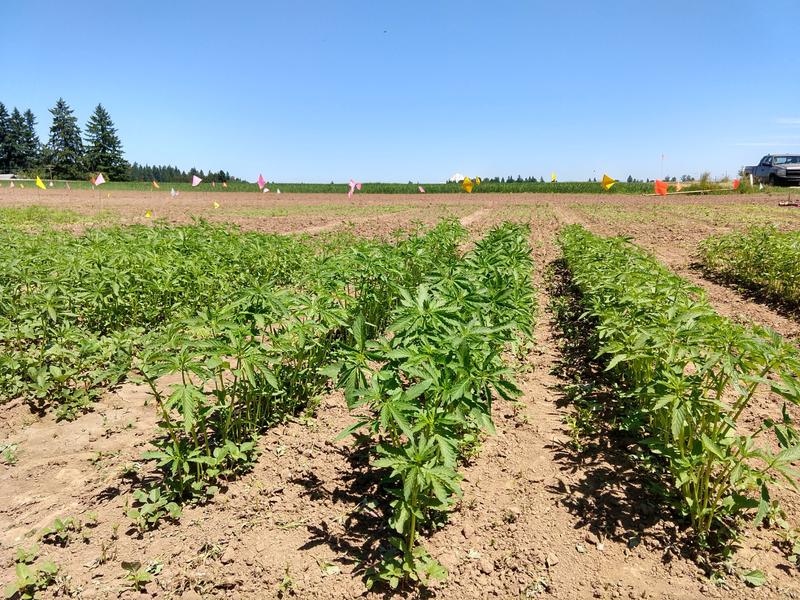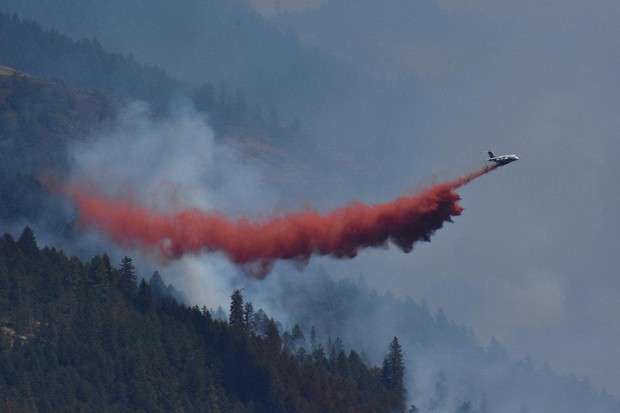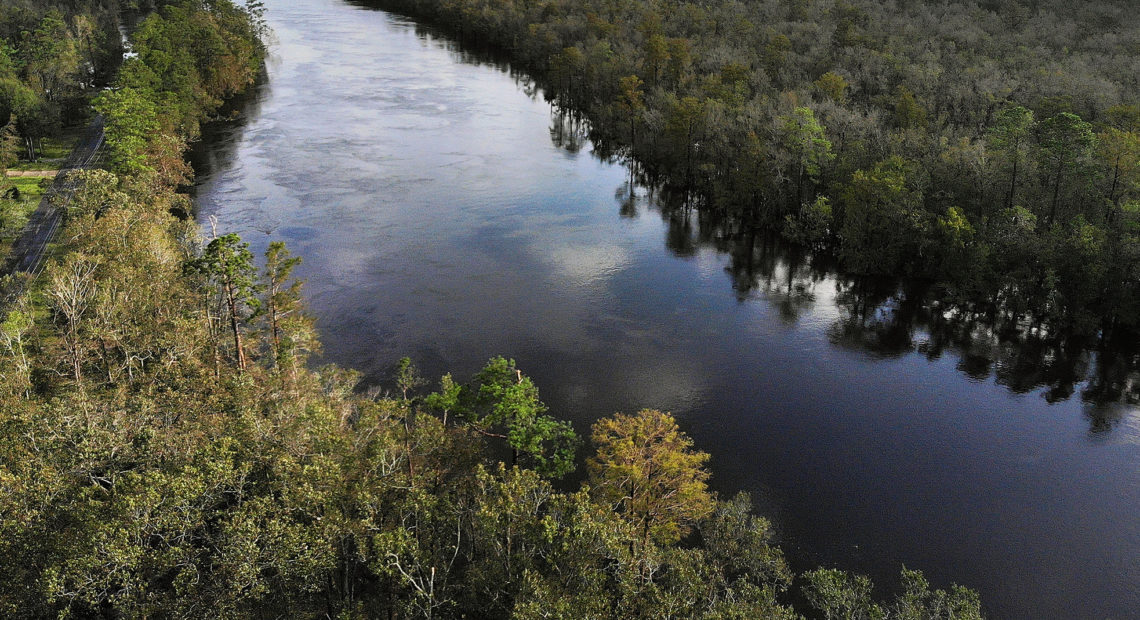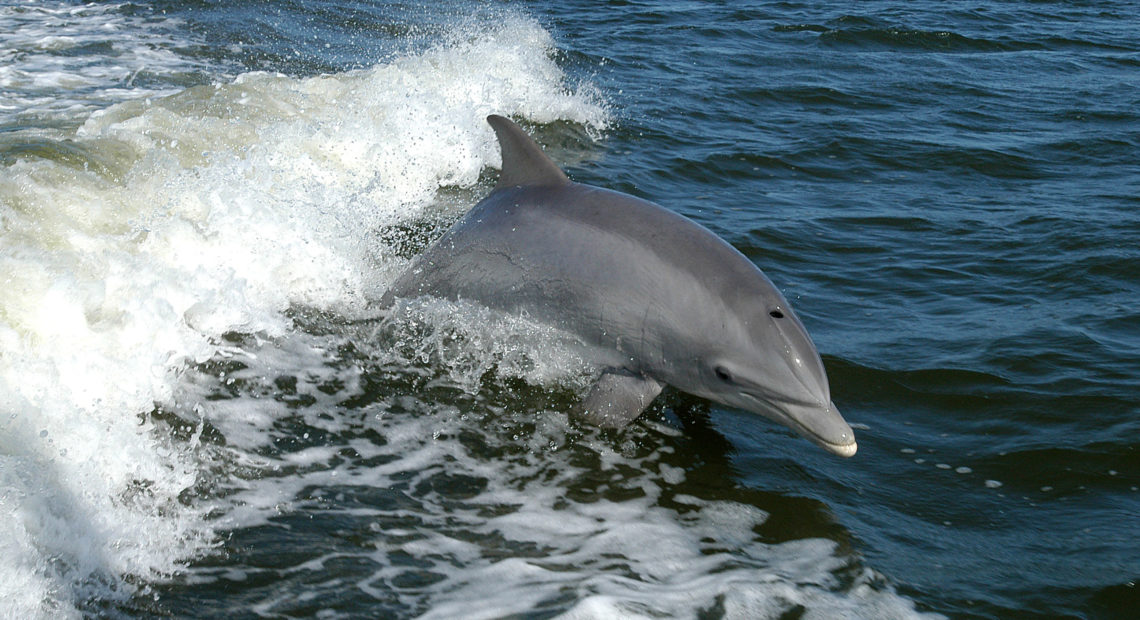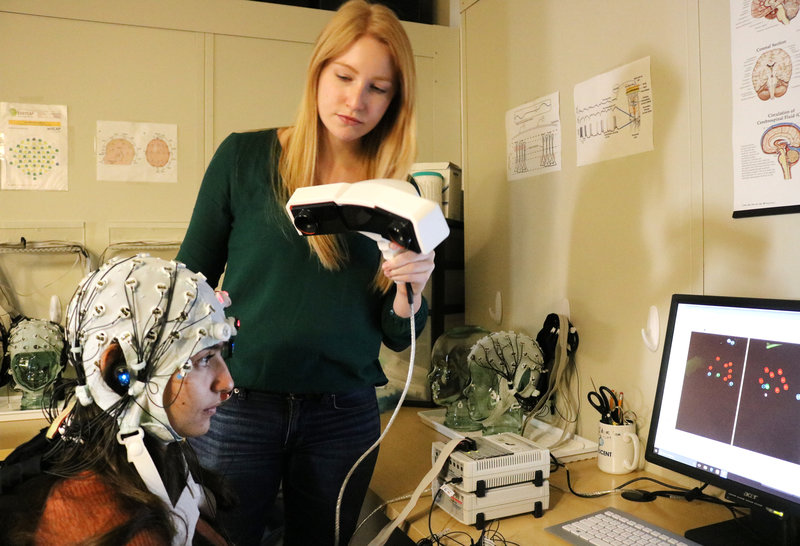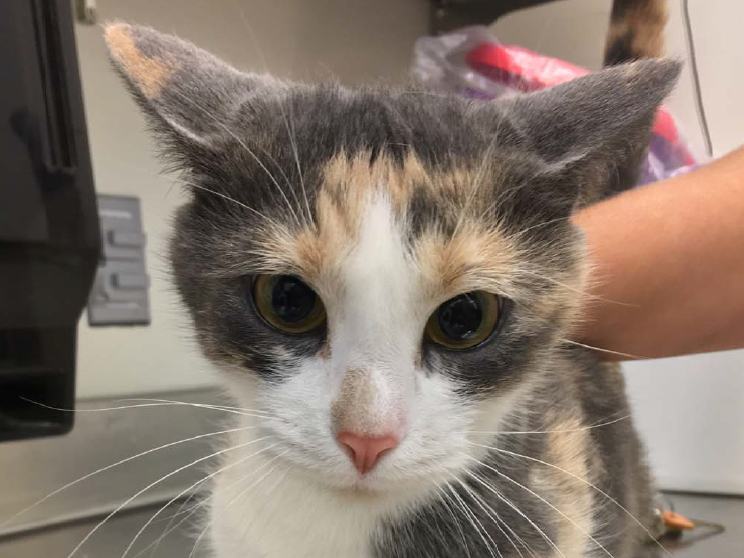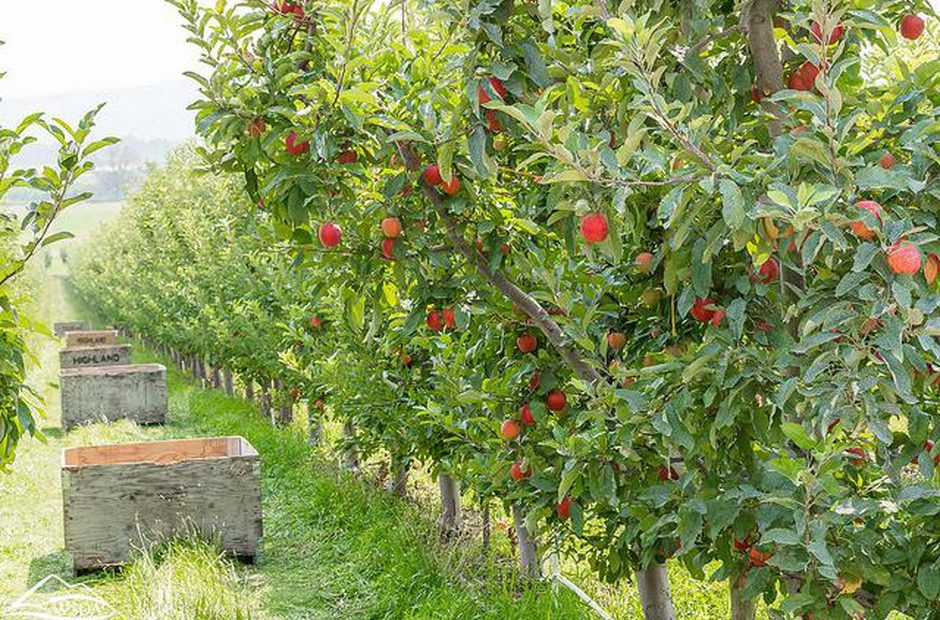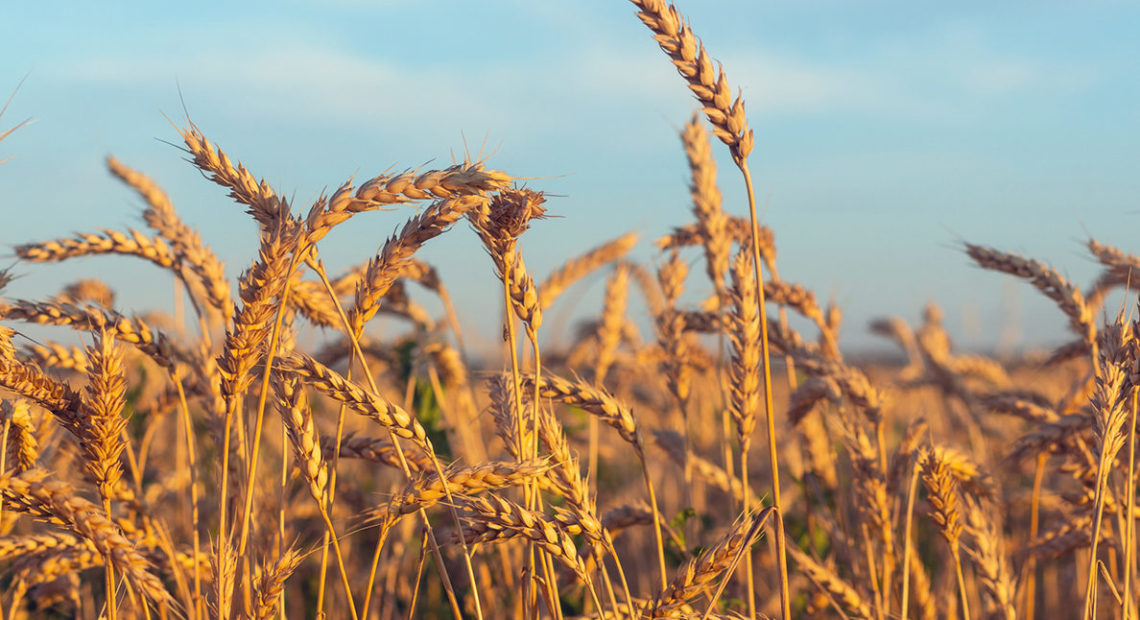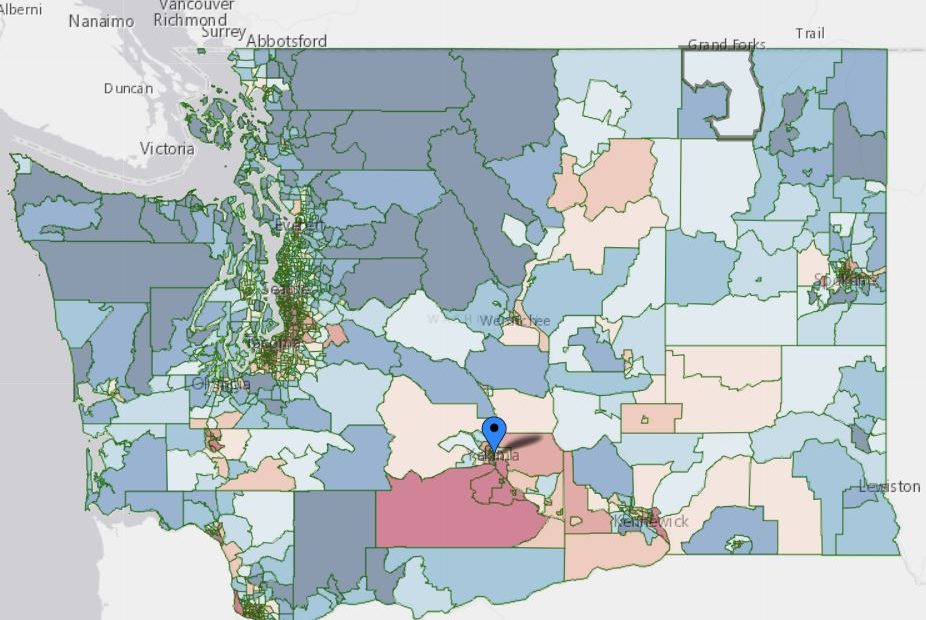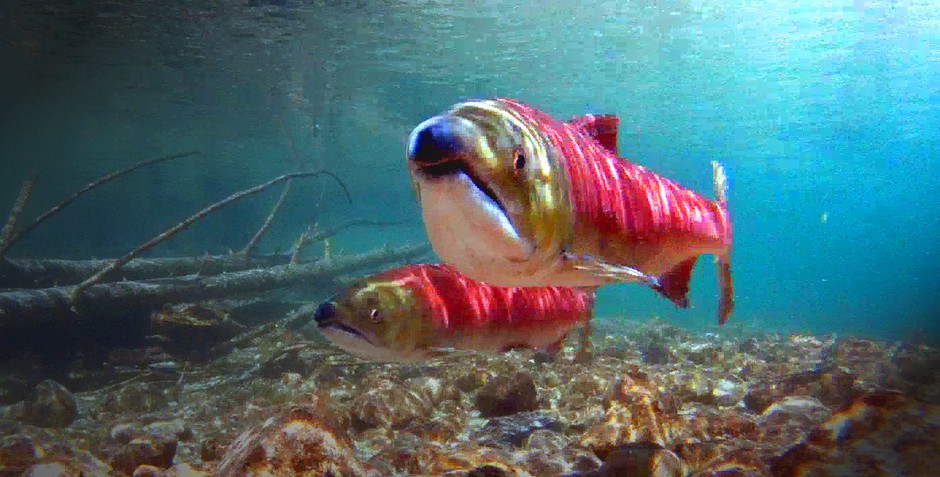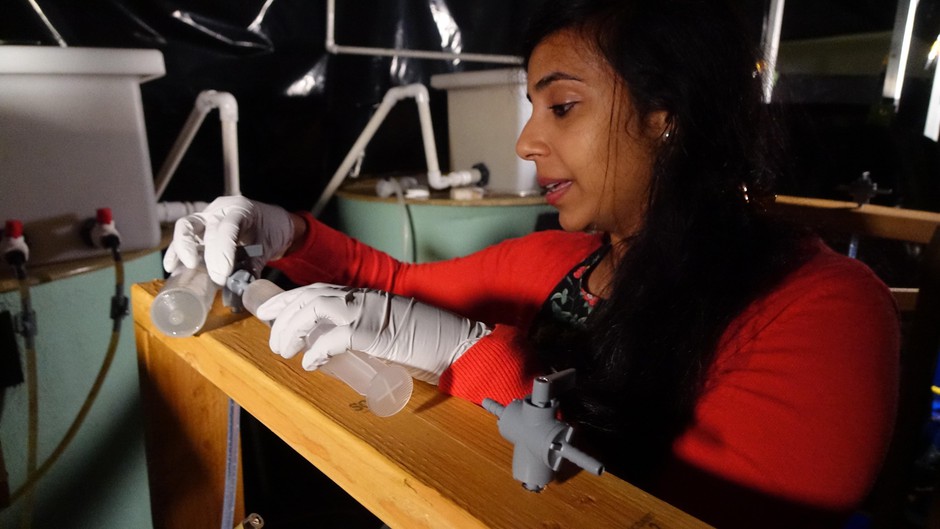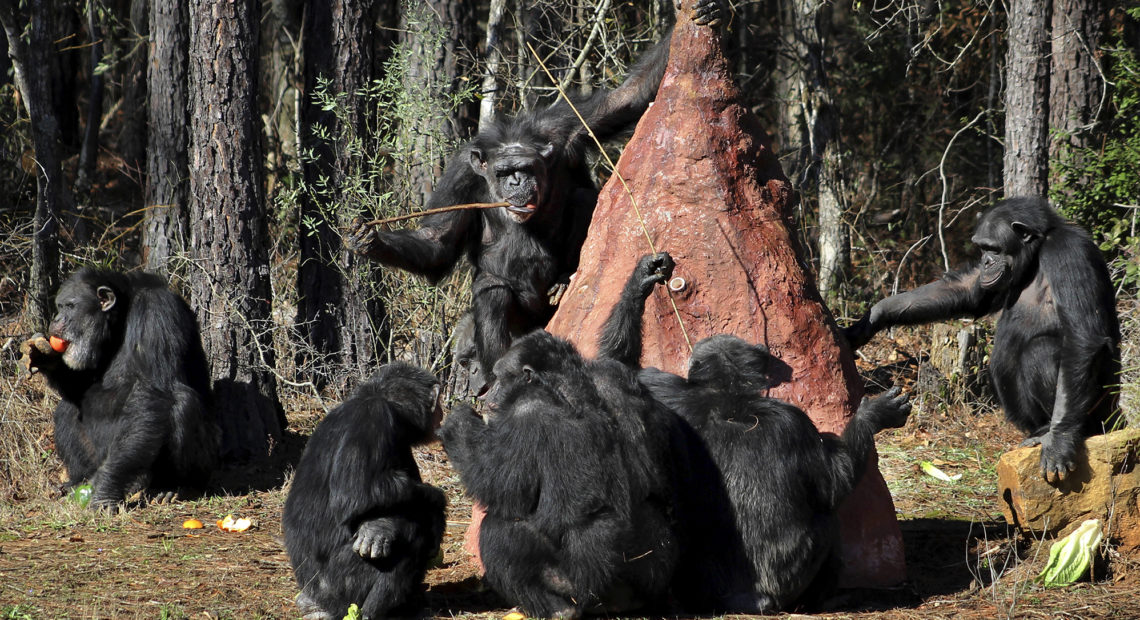Journalism students learn about broadcasting at Washington State University’s campus. One of the solutions for the decline in newsroom staff is more journalism education, according to WSU researchers. (Credit: Matt […]Read More
Both states saw steady or increased funding for public health, but Idaho still among lowest for vaccinations.Read More
Piper, a therapy dog, with students at Washington State University. (Credit: WSU Photo Services) Listen (Runtime :57) Read College students who spent time with therapy dogs on campus were less […]Read More
Lisa Keohokalole Schauer, left, Washington State University Board of Regents chair, listens to Elizabeth “Betsy” Cantwell speak as the newly appointed WSU president Thursday at a regents meeting in Pullman. […]Read More
Living in a walkable neighborhood could help you stay active. That’s according to a new twin study by researchers at Washington State University.Read More
August is National Breastfeeding Month, and many moms will have heard the term “breast is best” when it comes to nursing babies. But the truth could be more complicated. Read More
Mule deer in tall grasses and forbs, Iwetemlaykin Heritage Site, Wallowa Valley, Oregon. Listen (Runtime 4:46) Read Chris Rau — a home chef, hunter, and student in the College of […]Read More
Rabbits have long been the animal of choice for several tests to see if cosmetic products are safe, but a new law is banning new animal testing of cosmetic products […]Read More
Gary Chastagner, a Washington State University professor called “Dr. Christmas Tree” shows an example of a less-desirable tree due to fewer top branches, grown in a small plantation of Turkish […]Read More
A state worker unfurls a rainbow flag in front of the Washington state Capitol. (Courtesy: Elaine Thompson / AP Photo) Listen (Runtime 1:02) Read The state of Washington has a […]Read More
Researchers at Washington State University found that over 41 percent of American women between the ages of 15 and 49 don’t have access to an abortion provider within a 30-minute drive. Read More
Sunrise over Red Mountain vineyards in central Washington. (Credit: Andrea Johnson Photography/Washington State Wine Commission) Listen (Runtime 1:03) Read It’s been a slower start to spring in the Pacific Northwest, […]Read More
A mule deer lying in the grass. (Russ Parman via Flickr) Listen (Runtime 1:03) Read An animal advocacy group alleges Washington State University broke federal law after several animals died […]Read More
Senator Cantwell visits environmental technology and cryogenic hydrogen research lab on the campus of Washington State University. October, 12, 2022. (WSU Photo Services) Listen Democratic Sen. Maria Cantwell met with […]Read More
CRISPR has already been shown to help patients suffering from the devastating blood disorders sickle cell disease and beta thalassemia. And doctors are trying to use it to treat cancer and to restore vision to people blinded by a rare genetic disorder.Read More
For decades, scientists have been prohibited from keeping human embryos alive in their labs for more than 14 days. The prohibition was aimed at avoiding a thicket of ethical issues that would be raised by doing experiments on living human embryos as they continue to develop.Read More
The embryos, described Thursday in the journal Cell, were created in part to try to find new ways to produce organs for people who need transplants, says the international team of scientists who collaborated in the work. But the research raises a variety of concerns.Read More
Conservation groups and scientists are challenging a federal decision to build a road through the Mount St. Helens blast zone, saying it would damage more than two dozen decades worth of irreplaceable research plots.Read More
Trees have a little secret you might not know about. Yes, they produce oxygen. Yes, they take in carbon dioxide, a heat-trapping greenhouse gas. But, they also emit methane. Methane is a greenhouse gas that can be significantly more potent than carbon dioxide.Read More
For decades, the prevailing theory about the extinction of the dinosaurs was that an asteroid from the belt between Mars and Jupiter slammed into the planet, causing cataclysmic devastation that wiped out most life on the planet.Read More
Scientists have learned a lot this year about the coronavirus and how it's transmitted, and it turns out all that scrubbing and disinfecting might not be necessary.Read More
People who get more deep sleep appear less likely to develop Alzheimer's. That may be because this phase of sleep allows the brain to clear out waste products.Read More
As Washington works to combat climate change, can rangelands be better managed to make wildfires less catastrophic? What are the most effective solutions to remove invasive grasses, like cheatgrass, which dries out quickly, burns extremely hot and helps fires jump from bunchgrass to bunchgrass?Read More
Experts look into a new study that claims wearing a neck gaiter may be worse than no mask at all. And they discuss other face coverings such as goggles and plastic face shields.Read More
Two faculty members in the WSU College of Medicine have earned new grants for projects related to COVID-19 and cancer. Professors Ofer Amram and Patrik Johansson have each been awarded $100,000 from the Andy Hill CARE Fund for cancer research in western Washington.Read More
Hackers working with the Chinese government targeted firms developing vaccines for the coronavirus and stole hundreds of millions of dollars worth of intellectual property and trade secrets from companies across the world, the Justice Department said Tuesday as it announced criminal charges.Read More
The carefully followed death toll from COVID-19 may not fully capture the loss of life during the pandemic. Analysis of state and federal statistics for deaths from all causes shows hundreds of additional deaths above normal levels this spring in the Pacific Northwest. Some or many of those may actually be missed COVID deaths.Read More
New federal rules will prohibit international students from completing fully online courses of study while in the U.S. Monday's announcement comes as more colleges release their plans for the fall.Read More
Moss balls seem to roll around glaciers in a coordinated way, and researchers can't explain why the whole group moves at about the same speed and in the same direction.Read More
The race is on. What will it take to develop, test and distribute a safe and effective vaccine?Read More
In a study recently published in the Journal of Wildlife Management, WSU scientists found that lynx only occupy about 20% of potential habitat in Washington.Read More
The Trump administration is investigating the theory that the virus leaked from a lab. Scientists who work with viruses say that's virtually impossible and point to transmission from an animal.Read More
An overblown immune response could be killing a portion of the sick, and some doctors think that new treatments being tested could help at least some of those patients.Read More
Many schools paused in-person classes after students or staff members tested positive for the novel coronavirus. Others say the cancellations are a precaution.Read More
The number of workers getting less than seven hours of sleep a night is rising. Stress and our culture of constant connection may be to blame.Read More
Recently, there’s been a significant shift in our understanding of salmon genetics. Researchers have found a distinct area in salmon DNA where the spring and fall chinook differ.Read More
New research says climate change is decreasing the amount of snow in the Pacific Northwest. And that has implications for water resources in the region.Read More
Researchers have long hoped to find out if genes contribute to sexual orientation. A new study of genetic data from thousands of people hints there may be some link, but it's still far from clear. Read More
Oregon State University has established what it considers to be the nation's largest hemp research center. This comes amid a surge of farmer interest in the Northwest to grow the non-psychoactive cousin of marijuana.Read More
The amount of carbon dioxide being released into the atmosphere from forest fires in the U.S. West is being greatly overestimated, possibly leading to poor land management decisions, researchers at the University of Idaho said.Read More
PFAS are a family of chemicals accumulating in the soil, rivers, drinking water and the human body. How much exposure to these substances in clothes, firefighting foam and food wrap is too much?Read More
WSU Engineering Professor creates boats to model dolphin adaptability on waves using digital science and student researchers on the WSU campus. Read More
A study in Nature Neuroscience demonstrates a link between mismatched brain rhythms and declines in working memory in older adults and shows that a precise form of electrical stimulation applied to the scalp can coax these brain areas back into sync.Read More
Scientists infected the cats with toxoplasmosis and later killed them. Bipartisan members of Congress complained about the practice, and the agency ended the program.Read More
One of the country’s most widely-used herbicides could be linked to an increase in early deaths from Parkinson’s disease for people who live near farmlands, according to new research in Washington.Read More
People with Celiac disease are a bit closer to enjoying gluten products again. With the help of genetic modification, a team of Northwest scientists have engineered a unique wheat variety that’s safe for people with gluten sensitivities and allergies. Read More
The Environmental Health Disparities Map ranks neighborhoods from 1 to 10. Ten is coded in red, meaning a higher environmental risk while 1, being the lowest, is coded in blue. On that map, Yakima County is a big, red blemish. Read More
A new study suggests that salmon will not be immune to the effects of ocean acidification. Scientists found that changes to ocean chemistry disrupt a fish’s ability to smell danger in the water.Read More
Apparently, salmon don’t like the smell of watercress. The aroma of shrimp doesn’t pique their interest either. And the fragrance, eu de steelhead? A definite no-go.Read More
Lab chimps used in medical studies are being retired to a forested sanctuary. But scientists and workers who care for the animals say some older chimps aren't healthy enough to make the transition.Read More

